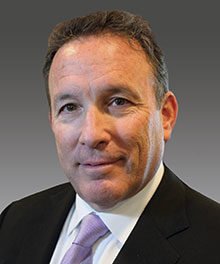In a Galaxy Far, Far Away

It seems every morning this week I’ve woken to alerts on my phone announcing that day’s Nobel Prize winners. Many of us remember the first time we peered through a “real” telescope at school or on a field trip and glimpsed a constellation or planet millions of miles away. It’s pretty awe-inspiring.
I thought back to what a great experience that was when I read about the Nobel Prize in physics going to three scientists who’ve played a big role in expanding how we see the universe.One of the winners was James Peebles, a professor at Princeton University, who mapped the history of the universe, including the Big Bang theory (also one of my favorite recent TV shows). The other winners, Swiss professors Michel Mayor and Didier Queloz, discovered a sun-like star outside of the solar system—the first discovery of its kind.
No matter what field we work in, it’s easy to get complacent and assume that how we look at things is the only way to see them. These scientists realized there’s still a whole lot we don’t know. They moved the world of physics forward because they weren’t afraid to question the status quo.
That takes humility—and courage. History is filled with innovators who got ridiculed for looking at things differently. Most people won’t recognize the name Ignaz Semmelweis, but he had a huge impact on medicine. He was a Hungarian physician, practicing in the 1800s, who was ostracized by his peers when he suggested that if they started washing their hands more, they would reduce the spread of infections. After years of isolation and ridicule, he died in a mental institution. It was only after he passed away that the medical community realized he was right.
Accounting is very different from science—I can’t think of an equivalent to the IRS or SEC in the world of physics!—but here at Marcum, we strongly encourage our team to break out of routine thinking, too. We work with many entrepreneurial companies that are shaking up their industries. Old-school solutions don’t work for companies that are breaking new ground. The more we challenge ourselves to think in fresh and innovative ways, we realize, the better we can serve them.
One area we’re helping many of our clients explore is how they do their work. Many tedious and routine tasks people don’t enjoy doing can now be tackled more quickly and accurately through robotic process automation. Automating this work takes a leap of faith for many companies, but many leaders find it frees up valuable time for their teams to do higher-level work that requires human intelligence. It’s amazing how much creativity you can unleash when you’re not bogged down with things like manual data entry.
Given all of the advances in AI, virtual reality, mobile internet connectivity, the cloud and personalized medicine, we’re going to be seeing some mind-bending innovation in the next few years. Sometimes, looking at things through a new lens is a little scary, but as the latest crop of Nobel Prize winners reminds us, it can also bring great advances and deepen our understanding of the very vast world we live in.
As many long-time readers of the column know, in addition to my role as Marcum’s CEO, I’m also one of the producers of the Jason Bourne movies. For those of you who didn’t know, this evolved out of my role as the accountant for Robert Ludlum, the writer who created Jason Bourne in his novels. Well, as it would happen, about 12 years ago, I was able to convince Universal (the studio that releases the Bourne films) to let us take Treadstone, the spy agency created by Ludlum in the Bourne novels, and spin it out to a stand-alone property.
I’m pleased to announce that after all this time, Treadstone will air as a TV series on USA Network, starting this coming Tuesday night at 10 pm EDT and run through December. So, for those of you interested or so inclined, please tune in and let me know what you think. It’s been a long 12 years.
